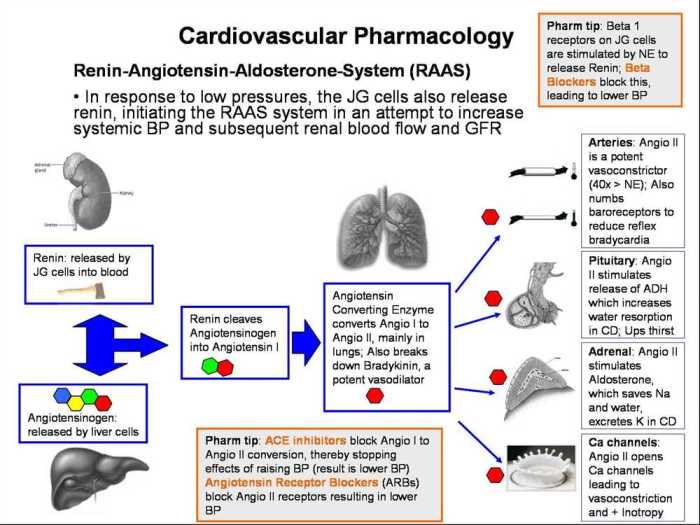RN Pharmacology Assessment A Relias is a comprehensive assessment tool designed to evaluate the pharmacology knowledge of registered nurses (RNs). This assessment is essential for ensuring that RNs have the necessary knowledge and skills to safely administer medications to patients.
The assessment covers a wide range of pharmacology topics, including drug classification, pharmacokinetics, pharmacodynamics, and adverse drug reactions. It also includes questions on medication administration, patient assessment, and medication safety. The assessment is scored using a standardized scoring system, and the results are used to identify areas of strength and weakness.
Introduction

The RN pharmacology assessment is a comprehensive tool designed to evaluate a registered nurse’s (RN) knowledge and skills in pharmacology. It plays a crucial role in ensuring the safe and effective administration of medications to patients. The assessment consists of various components that assess different aspects of pharmacology, including medication administration, drug interactions, and patient education.
By utilizing this assessment, healthcare organizations can identify areas where nurses require additional training or support, thereby enhancing medication safety and patient outcomes. The assessment results provide valuable insights into nurses’ understanding of pharmacological principles, enabling targeted interventions to improve medication management practices.
Assessment Tool Overview
The RN pharmacology assessment typically includes the following components:
- Multiple-choice questions covering pharmacology principles, medication administration, and patient education.
- Case studies that assess nurses’ ability to apply pharmacological knowledge in real-life situations.
- Skills demonstration, such as medication preparation and administration.
- A self-assessment component where nurses evaluate their own knowledge and skills.
Assessment Components
The Relias RN Pharmacology assessment comprises several key components, each designed to evaluate specific aspects of pharmacology knowledge. These components collectively provide a comprehensive evaluation of an RN’s understanding of pharmacological principles and their application in clinical practice.
The assessment components include:
- Multiple-choice questions:These questions present a clinical scenario or pharmacological concept and offer multiple answer choices. They assess the RN’s ability to apply pharmacological knowledge to clinical situations.
- Case studies:These scenarios provide a detailed patient case and ask the RN to analyze the patient’s condition, identify appropriate pharmacological interventions, and justify their recommendations. They evaluate the RN’s critical thinking skills and ability to apply pharmacology principles to patient care.
- Dosage calculation questions:These questions require the RN to calculate medication dosages based on patient weight, medication concentration, and administration schedule. They assess the RN’s understanding of medication dosage calculations and the ability to apply these calculations in clinical practice.
- Short answer questions:These questions ask the RN to provide concise written answers to questions related to pharmacology concepts or clinical scenarios. They evaluate the RN’s ability to recall and articulate pharmacological knowledge.
- Simulation exercises:These exercises simulate real-life clinical situations and require the RN to make pharmacological decisions in a virtual environment. They assess the RN’s ability to apply pharmacological knowledge in a dynamic and interactive setting.
Scoring and Interpretation
The RN Pharmacology Assessment utilizes a comprehensive scoring system to evaluate the candidate’s knowledge and skills in pharmacology. The assessment consists of multiple-choice questions, case studies, and simulations, each carrying a specific weight in the overall score.
The scoring system is designed to identify areas of strength and weakness in the candidate’s understanding of pharmacology. A higher score indicates a strong foundation in pharmacology, while a lower score suggests areas where further education or training is necessary.
Interpretation, Rn pharmacology assessment a relias
The assessment results are interpreted based on a predefined scoring rubric. Each question or component is assigned a point value, and the candidate’s total score is calculated by summing up the points earned. The score is then compared to the established benchmarks to determine the candidate’s level of proficiency in pharmacology.
A detailed score report is provided to the candidate, outlining their performance in each section of the assessment. This report highlights the areas where the candidate excelled and identifies areas where additional support or training may be beneficial.
Use in Practice
The RN Pharmacology Assessment can be a valuable tool for improving nursing practice by enhancing nurses’ knowledge and skills in pharmacology and medication administration. The assessment can be used to identify areas where nurses need additional training or support, and it can also be used to track progress over time.
There are a number of ways that the RN Pharmacology Assessment has been used to enhance patient care. For example, the assessment has been used to:
Identify nurses who need additional training or support
- Identify nurses who need additional training or support in pharmacology and medication administration.
- Develop targeted training programs to address the specific needs of nurses.
- Track the progress of nurses who have received additional training.
Improve patient safety
- Reduce the number of medication errors.
- Improve patient outcomes by ensuring that patients receive the correct medications at the correct dose and time.
- Increase patient satisfaction by providing patients with accurate information about their medications.
Reliability and Validity

The RN Pharmacology Assessment has undergone rigorous testing to establish its reliability and validity. The assessment utilizes several methods to ensure accurate and consistent results.
Reliability
The assessment employs multiple-choice questions, which have been shown to be a reliable method of measuring knowledge and skills. Additionally, the assessment is designed to be consistent across different administrations, meaning that individuals who take the assessment multiple times will receive similar scores.
Validity
The assessment has been validated against other measures of pharmacology knowledge and skills, including expert judgment and performance on clinical tasks. This evidence supports the accuracy and relevance of the assessment in measuring the intended constructs.
Limitations

Like any assessment tool, the RN Pharmacology Assessment has some limitations. One limitation is that it is a self-report measure, which means that participants may not always be accurate in their responses. For example, participants may overestimate their knowledge and skills or may not be aware of their own limitations.
Another limitation is that the assessment is not comprehensive. It does not cover all of the pharmacology knowledge and skills that are required of registered nurses. Therefore, it is important to use the assessment in conjunction with other methods of evaluating RN pharmacology competence.
Addressing Limitations
There are several ways to address the limitations of the RN Pharmacology Assessment. One way is to use the assessment in conjunction with other methods of evaluating RN pharmacology competence. For example, the assessment could be used as a screening tool to identify nurses who need additional training.
Nurses who score poorly on the assessment could then be required to complete a more comprehensive evaluation.
Another way to address the limitations of the assessment is to make it more comprehensive. This could be done by adding more items to the assessment or by developing different versions of the assessment that cover different aspects of pharmacology.
Conclusion: Rn Pharmacology Assessment A Relias
The RN pharmacology assessment is a crucial tool for nurses to evaluate a patient’s understanding and knowledge of their medications. It enables nurses to identify areas where patients may require additional education and support, ensuring optimal medication adherence and improved patient outcomes.
Importance of RN Pharmacology Assessment in Nursing Practice
The RN pharmacology assessment is of paramount importance in nursing practice due to several reasons:
- Enhances Patient Safety:By assessing patients’ knowledge and understanding of their medications, nurses can identify potential medication errors and adverse events, promoting patient safety.
- Improves Medication Adherence:Patients who have a clear understanding of their medications are more likely to take them as prescribed, resulting in improved adherence and better health outcomes.
- Facilitates Effective Communication:The assessment process fosters open communication between nurses and patients, allowing for a better understanding of patients’ needs and concerns.
- Supports Patient Empowerment:By actively involving patients in their medication management, the assessment empowers them to take ownership of their health and make informed decisions.
FAQ Overview
What is the purpose of the RN Pharmacology Assessment A Relias?
The purpose of the RN Pharmacology Assessment A Relias is to evaluate the pharmacology knowledge of registered nurses (RNs).
What are the key components of the assessment?
The key components of the assessment include drug classification, pharmacokinetics, pharmacodynamics, adverse drug reactions, medication administration, patient assessment, and medication safety.
How is the assessment scored?
The assessment is scored using a standardized scoring system.
How can the assessment be used to improve nursing practice?
The assessment can be used to identify areas of strength and weakness, and it can help RNs to develop a plan for continuing education.
